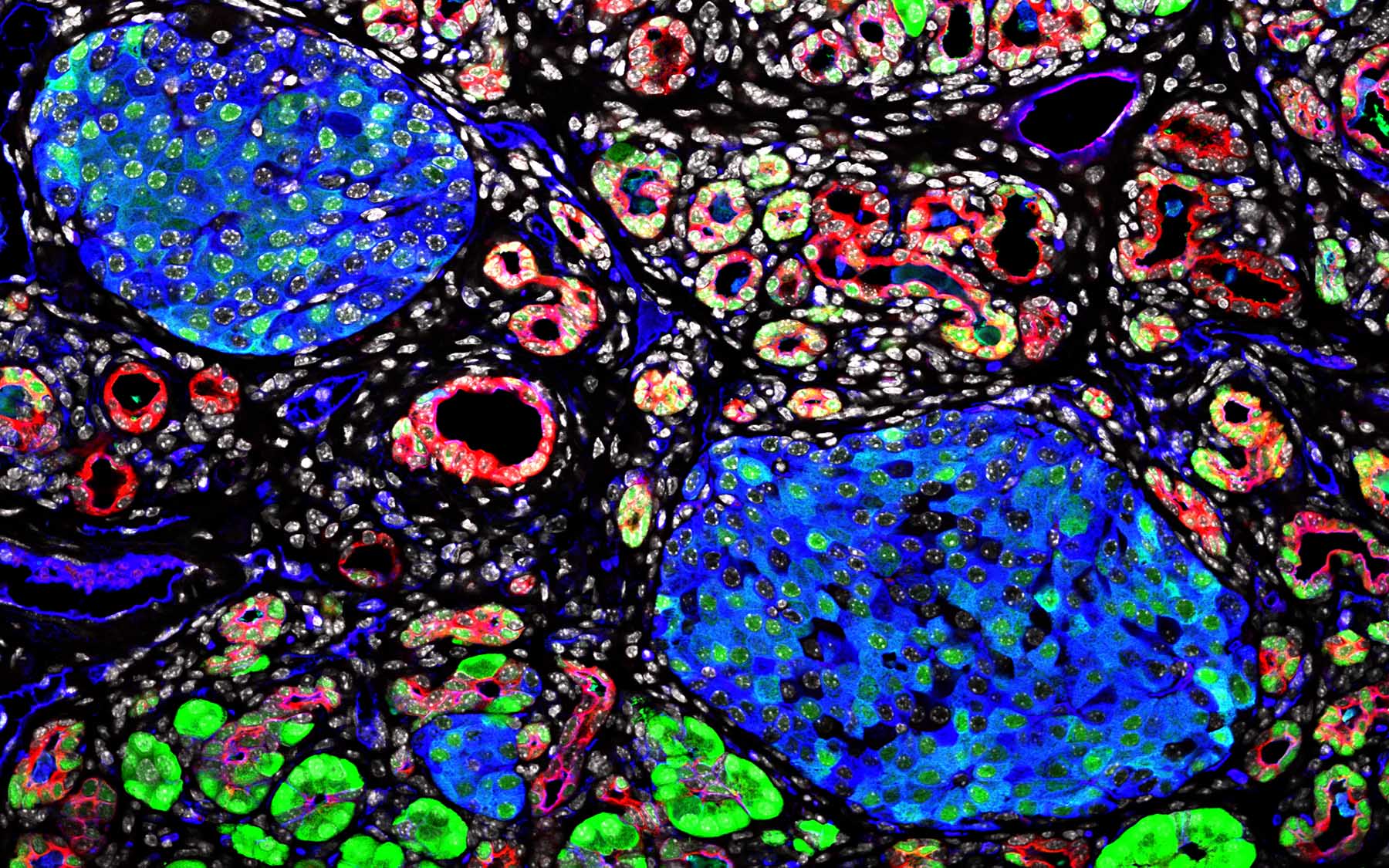'Sugar-coating' proteins to treat pancreatitis?
A powerful biomarker created by complex sugar molecules, called CA19-9, may be a target for the treatment of pancreatitis. Pancreatitis is an inflammatory disease of the pancreas that results in 275,000 annual hospitalizations in the United States. Individuals with hereditary pancreatitis are at risk in developing pancreatic cancer.
Learn more about pancreatitis:
"Pancreatitis is required for developing pancreatic cancer, and we might be able to prevent that transition in patients with pancreatitis by targeting CA19-9," says Dannielle Engle, a former Cold Spring Harbor Laboratory (CSHL) Cancer Center postdoctoral fellow and appointed Assistant Professor at Salk Institute "By targeting CA19-9 with antibodies in animal models, we were able to reduce the severity of pancreatitis and even prevent it from occurring."
Credit, Cold Spring Harbor Laboratory (CSHL): Pancreatic lineage immunofluorescence (IF) of the whole body, R;F CA19-9 mouse model.
Findings were published in the journal Science and describes that mice who produced CA19-9--a complex sugar structure that coats many proteins but had not been previously ascribed with any particular function--surprisingly developed severe pancreatitis. CA19-9 was also shown to dramatically result in the the growth of pancreatic tumors. Overall, the findings conclude that CA19-9 may be an attractive therapeutic target for pancreatitis.
"This is one of those unique opportunities where prophylactic intervention of pancreatitis may lead to prevention of pancreatic cancer in at-risk patients," Engle said.
An application was filed by CSHL in current pending status for the use of CA19-9 antibodies for treating and preventing pancreatitis.









